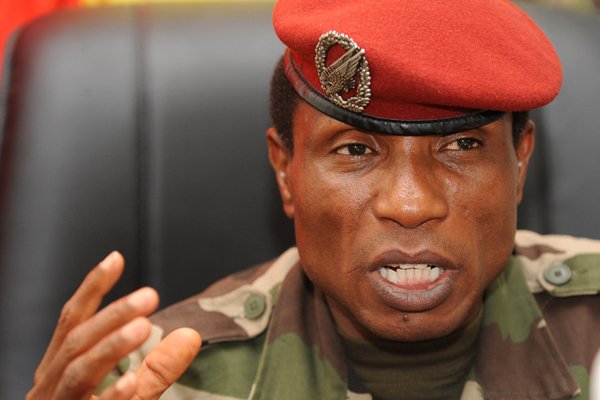Guinea’s former dictator Moussa Dadis Camara denied responsibility when he took the stand Monday at a trial of officials implicated in a 2009 massacre.
Camara and 10 other former military and government officials are accused of the killing of 156 people and the rape of at least 109 women by forces supporting the military government at a political rally in a Conakry stadium in September 2009.
They face charges ranging from murder to sexual violence, kidnappings, arson and looting. Camara himself is charged with “personal criminal responsibility and command responsibility”.
The United Nations has labeled the violence in 2009 as a crime against humanity, and Human Rights Watch said the violence was premeditated.
Witness testimony revealed that hundreds of members of the red beret presidential guard, gendarmes and anti-riot police stormed the stadium and opened fire as civil society activists and opposition supporters were chanting in a largely peaceful atmosphere.
Camara’s deposition was a key moment that survivors and relatives of the victims had been waiting for since the trial that opened on September 28, 13 years to the day after the massacre.
Proceedings in the trial were postponed until today from a week ago after Camara said he was too ill to give testimony.
Camara, at the time an unknown army captain, seized power in December 2008 shortly after the death of Guinea’s second post-independence president, General Lansana Conte, who had ruled for 24 years.

